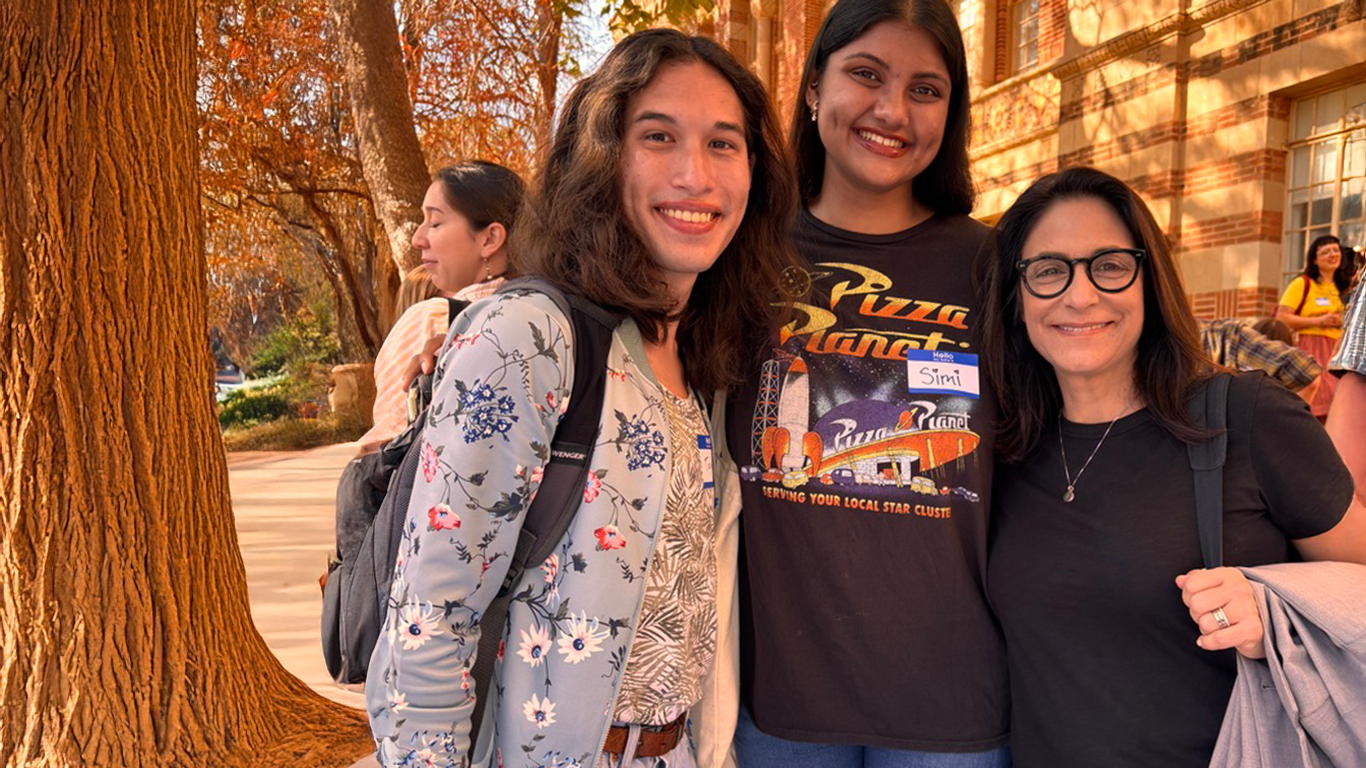Wasserman Dean Christina Christie, Ed&IS faculty and staff welcome new students.
The UCLA School of Education and Information Studies kicked off the 2025-2026 school year with its Convocation on Sept. 24 in Moore Hall. Wasserman Dean Christina Christie, members of school leadership, and staff welcomed 31 new doctoral students; 205 new master’s students; and more than 100 new undergraduate majors and minors, as well as five new faculty members.
Jill Locke, PhD; Nicole Mirra, PhD; and Mike Hoa Nguyen PhD, have joined the Department of Education, effective as of July 1, 2025; all three are UCLA alumni. Nicole Else-Quest, who was hired in 2024, also assumed her faculty position as of July 1. Susan Bush-Mecenas, PhD, will assume her role as an assistant professor of evaluation in education, effective March 1, 2026.
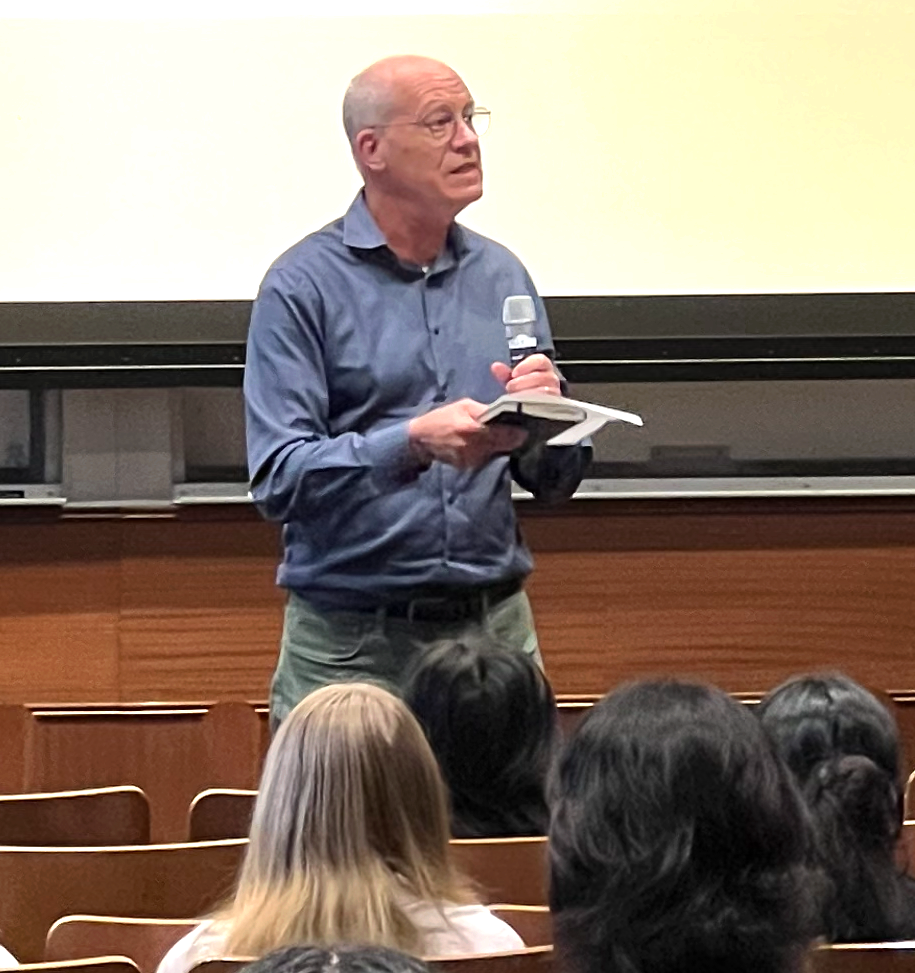
Dean Christie addressed the new students, saying that, “You belong here, and we are so proud to welcome you into this community.
“Every one of you brings a story, a journey, and a set of experiences that led you here,” she said. “Some of you are the first in your family to attend college. Some of you crossed oceans to be here. Some of you juggled jobs, caregiving, or other responsibilities while pursuing your education. All of you persevered through challenges, and all of you accomplished something extraordinary.”
Christie noted that UCLA Ed&IS was one of the first schools in the country to bring education and information studies together, recognizing the links between learning and access to knowledge; the global impact of the faculty who shape policy, practice, and scholarship; and the diverse career pathways that Ed&IS alumni have taken, leading in schools, libraries, universities, nonprofits, government, and tech fields.
“Democracy is not just an abstract idea — it lives in the institutions we build, the freedoms we protect, and the improvements people experience through collective action: public schools, clean air and water, the right to organize, freedom of speech, the promise of equal access to opportunity,” she said. “That is why your work matters. So, as you begin this journey, I challenge you to see your studies not only as academic and professional training, but as civic work.”
John Rogers, professor of education and associate dean for research and public scholarship, echoed the role of education and information in preserving democracy, saying that, “When everyday people come together, they have the capacity to deal with really complex issues and that they should be empowered with making decisions about our collective future.
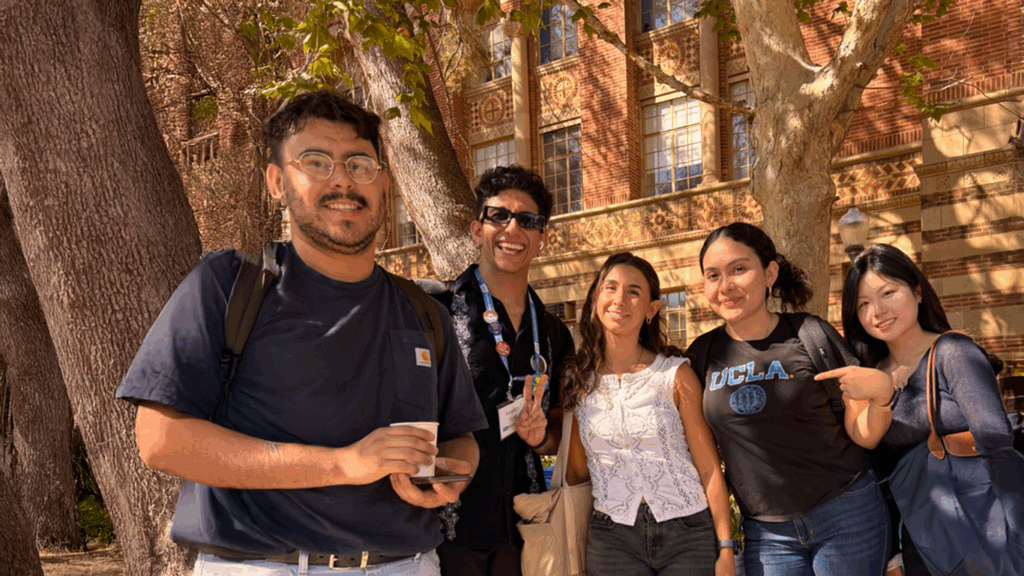
“We need to think about how we’re going to go about defending public scholarship because defending public scholarship is one and the same project as defending our public schools, defending our colleges, and defending our libraries,” said Professor Rogers. “We do this by creating spaces where we … come together and learn about issues that are affecting our schools, our libraries, and our universities. We do this by creating new knowledge and sharing it with the public in a way that expresses respect and establishes relationships of trust, and we do this by supporting young people to create knowledge themselves and to share that knowledge so that they feel empowered.”
Georgia Lazo, associate dean of university partnership schools at UCLA, also addressed the new students, noting that like many of them, she was a first-generation college graduate from immigrant parents.
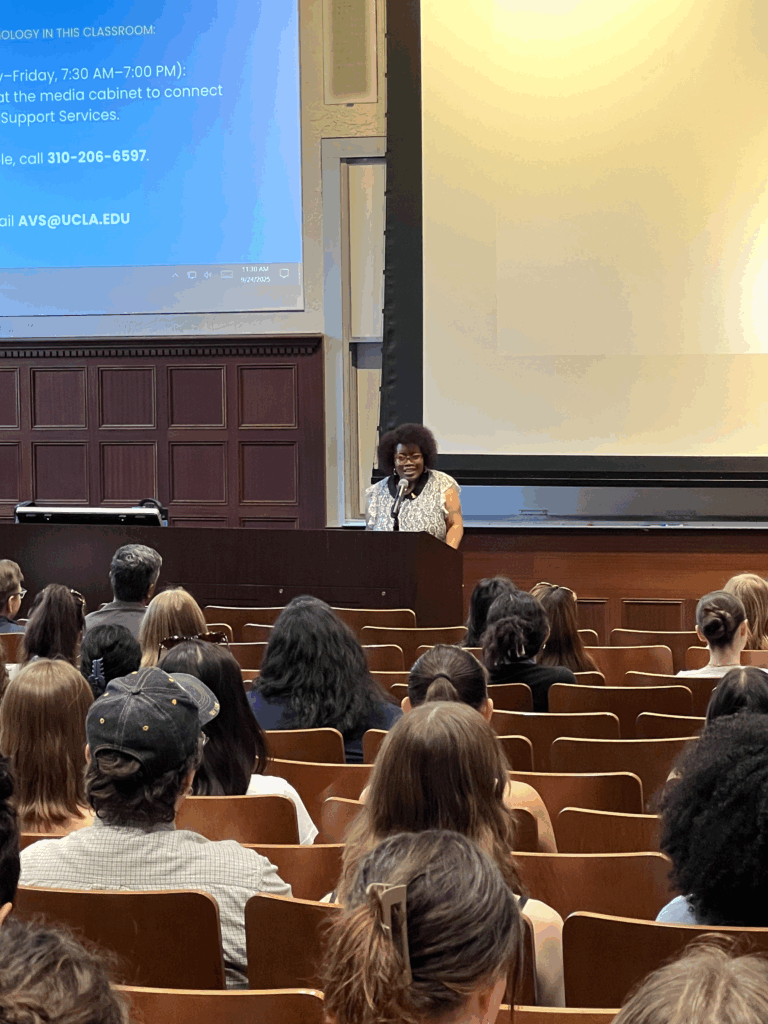
“Wherever you are on your academic journey, your social journey, your intellectual journey, you are welcome here,” said Lazo, who supports UCLA Lab School, UCLA Community School, and Mann UCLA Community School. “This is a place where I have felt at home; where I have felt that I am able to express ideas and share them with likeminded persons and share them with persons who might disagree. And that’s what being at a university is about.”
Annamarie Francois, associate dean for public engagement, introduced herself and her work of connecting Ed&IS to, “policymakers in Sacramento, community organizations across Los Angeles, and most importantly, philanthropic partners who can take our work to scale.” She offered students the chance to partner in their research with schools and community-based organizations in her role of positioning the work of Ed&IS to have “maximum impact.”
“At the end of the day, public engagement is about making sure the ideas we generate together here don’t just circulate among us,” said Francois. “We’re about making an impact in the lives of communities we care about and the young people … that we serve. [We’re here] to change lives, change policy, and strengthen public discourse. That’s why we do this work.”
Lori Patton Davis, professor of education; the Heyman Endowed Chair; and faculty director of the UCLA Educational Leadership Program, told the incoming students, “Each person in this room has everything they need to be successful and it’s our job as professors and staff to help you enhance what is already a part of who you are.”
Professor Patton Davis discussed “assignments” to help mitigate the current political and social polarization that exists across the nation, charging the students with being a “bridge builder.”
“I mentioned how divided our nation is and I have no doubt that we can all fill this division in some way or another,” she said. “I encourage you to create the bridge that might connect you with another person who you experience as different from you.
“Be a critical thinker. Be your authentic self – do the work. Our school, our world, will be a much richer place because of what you will ultimately contribute.”
Ramesh Srinivasan, professor of information studies, spoke on AI and the importance of retaining humanistic ideals amid the omnipresence of technology.
“As our dean said earlier today, questions of information and questions of learning are absolutely inseparable,” said Professor Srinivasan. “We have an opportunity to make technology work for us as workers, as consumers, for our democracies, for our economic security. We have a huge opportunity to stand for technology that lifts up all beings.”
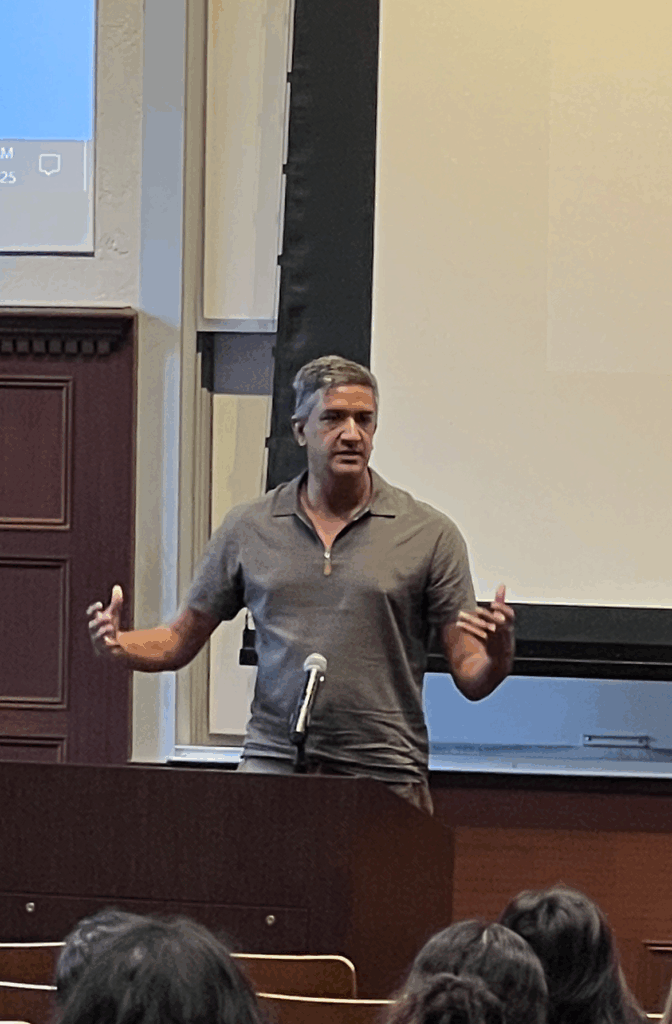
Cecilia Rios-Aguilar, chair, UCLA Department of Education, underscored the fact that, “no one gets here alone,” and urged students to think about “…all the people and all the events that helped you get here,” and spoke on the importance of community.
“A community is something that we all build together,” she said. “I’d like to reflect on three key ingredients that make our community. One is trust – confianza. Second, empathy. And the third, mutual respect. I think these are key ingredients to a concept that I have been reading and have been fascinated [by] for a very long time called the practice of conviviality.
“We live in complex times – attacks, mistrust, incivility,” said Professor Rios-Aguilar. “To resist the call to break us apart, we must come together and practice conviviality. The more we practice it, the stronger our community will be.”
Robert D. Montoya, chair, UCLA Department of Information Studies; associate professor and the Martin and Bernard Breslauer Endowed Professor in Bibliography, highlighted the broad range of fields to be impacted by UCLA IS graduates, including not only libraries, archives, museums, and universities, but data sectors, generative AI, information policy, data privacy, and data justice, and noted that students would be, “ … providing necessary services and skills in a culture that devalues knowledge and freedom of expression.”
“It’s reductive to merely think of information studies as a clearcut division of specializations,” said Professor Montoya. “Sure, we work in archives; we work in rare books; we work in media archives; we work informatics. But each and every one of our faculty – and you’re going to find out, each and every one of you – transcend these silos. Regardless of our specific area of interest, our institution choice, our space of work, we’re unified by doing work that is ethical, promotes social justice, and that strives for a more ethical and equitable society.”
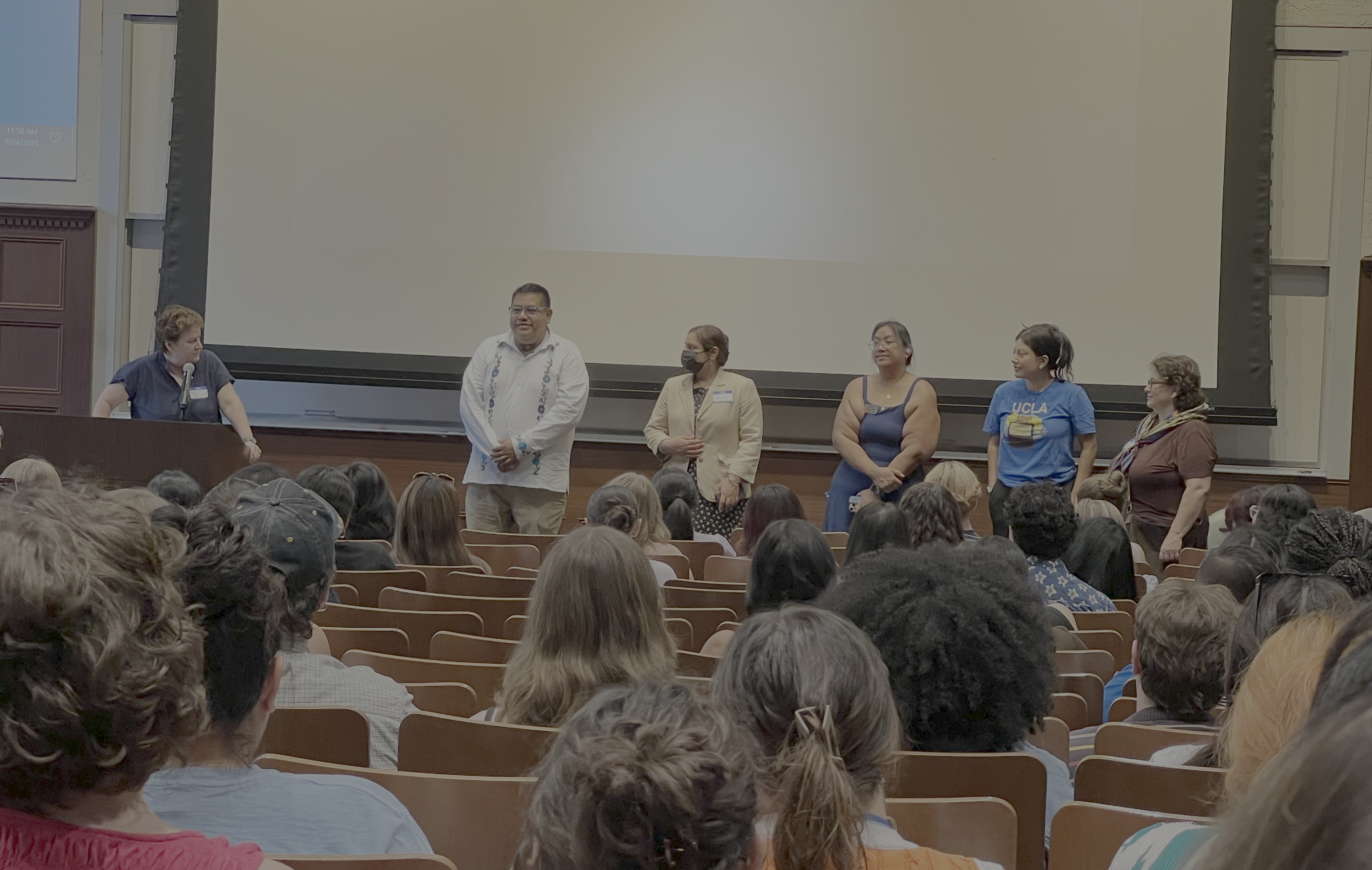
Dean Christie discussed how education gives students, “… democracy’s most powerful inheritance. It prepares citizens not only to participate in the economy but also to safeguard freedom itself. Information studies is equally critical, because in an age of distortion and manipulation truth-telling, knowledge curation, and equitable access to information are acts of democratic defense.
“Democracy will not defend itself,” said Christie. “It requires teachers, librarians, researchers, and citizens who understand that freedom and fairness are intertwined — that the health of our institutions and communities depends on the health of our democracy, and vice versa. As an Ed&IS student, you are now part of this work. You are here to learn, to question, to imagine, and ultimately to lead.”
